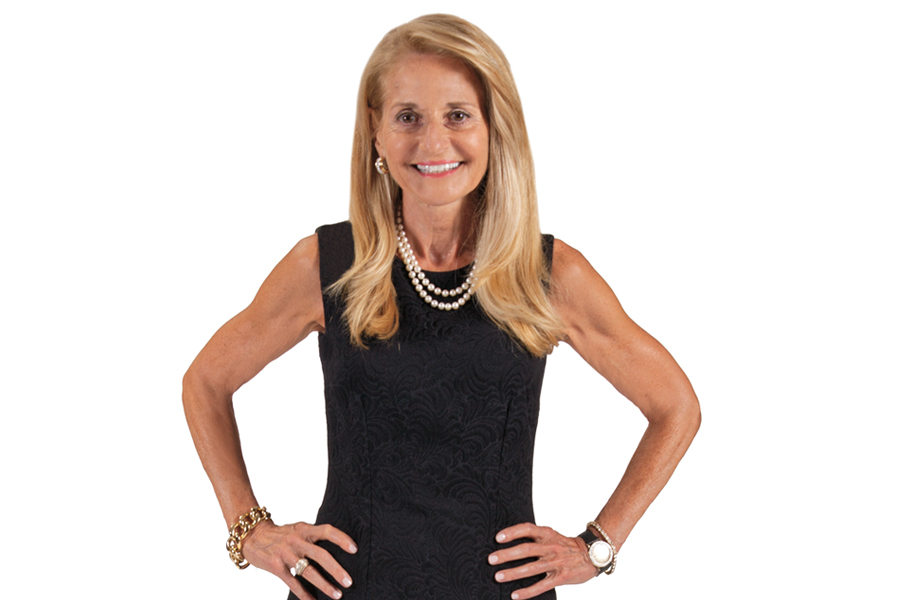
Giving and helping others has always come naturally to Overseer Dr. Madelyn Antoncic, former vice president and treasurer of the World Bank. With a long history of bolstering cancer research efforts at Weill Cornell Medicine, Dr. Antoncic decided recently to expand her philanthropic focus and support those who cannot advocate for themselves; her generous estate gift of $10 million will establish the Madelyn Antoncic, PhD, Pediatric Research Fund for Childhood Disease, funding basic and translational research leading to cures for many of today’s life-threatening pediatric diseases. In 2005, Dr. Antoncic joined the Weill Cornell Medicine Board of Overseers and has been an avid member of the Board’s Development Committee, Business and Finance Committee, Clinical Affairs/Physician Organization Committee and Special Committee on Research.
Dr. Antoncic recently sat down with Larry Schafer, vice provost for external affairs, to speak about the impact of philanthropy and what she hopes her gift will accomplish at Weill Cornell Medicine.
LS: You joined the Board of Overseers in 2005; can you tell me what that experience has been like for you?
MA: I honestly can’t believe how fast time has gone. It’s been a great experience. Being on the Board is like being part of a family. It’s been amazing to see the incredible things that have happened here – in 11 years, there’s been so much progress. For example, when we started the Special Committee on Research (SCOR) we knew we had to fix our entire tech transfer process. Navigating what was a bureaucratic system to get licenses and patents was cumbersome and time consuming for researchers. We needed to provide researchers the framework and tools to enable them to focus on doing their great work. We needed to create transparency and to streamline the process. And through this committee, we did just that. We recently had a SCOR meeting where we reviewed the licensing, patent and research results, and I commented about how far we have come and how much we have been able to accomplish. It is so rewarding to see the by-product of putting in place a process that allows the researchers to concentrate on their work. Another example of being able to be part of incredible things happening is the Belfer Research Building. When I first walked into that building after it opened, I looked up and saw this amazingly impressive space and thought to myself, “Wow, this is so great.” I remember being part of the planning process and sitting with the architects about what should be done in that building – how the entrance should look; where the open space for students and researchers should be; and all of the details that go into planning a building. I remember the groundbreaking. And now it’s here – a wonderful space where great research is happening.
LS: You were one of the leaders on the Board who underscored the importance of research at our institution. Now the Belfer Research Building is almost full and we have a huge number of cancer researchers here, thanks to donors like you. What made you decide to start supporting children’s health research as well?
MA: I have always been passionate about supporting cancer research, both personally and by raising funds. Earlier in my life I supported leukemia. Then my attention turned to helping establish the Neuberger Berman Lung Cancer Research Center. But recently, I started thinking, “Where else can I help make a difference?” Cancer is often considered a disease of older people. I began to wonder, “What could I support that would give hope and a future to someone who may not even have a chance to grow old?” That made me start thinking about children. I was thinking about a little girl who has become such an important part of my life – how vulnerable she is and how much she relies on me and needs me. That was the moment that I made the connection. She was my inspiration. I want to help the most vulnerable in life – they need advocates – and supporting pediatric research at Weill Cornell Medicine is one of the best ways I can do that.
LS: Thank you for being an inspiring advocate by establishing the Madelyn Antoncic, PhD, Pediatric Research Fund for Childhood Disease. What do you hope this fund will accomplish?
MA: The amount of research that goes into supporting children’s health is so small in comparison to other research areas. I think many people just don’t think about the fact that kids are not just little people – they have different diseases and different needs. I hope this fund will provide an opportunity to generate more ideas and more resources to discover cures. I want to lead by example and hope that this endowment will also encourage others to support pediatric research.
LS: Did someone teach you to be philanthropic or is that something you learned on your own?
MA: I would say there are some things in life that are not “learned” – some things just feel natural or they don’t. To me, helping others just feels natural. Whether it was tutoring disadvantaged students after school or visiting with the underprivileged and the sick on the weekends during my earlier years, helping others and giving back has always just felt like the right thing to do. Later, I joined the World Bank to “give back.” There I used my background, working hard to help raise emerging and developing countries out of poverty through technical assistance and capacity building in the areas of economics and finance. I also see being a member of the Board of Overseers as one more way I can give back. I am fortunate now to be able to help others financially. However, being an Overseer also gives me an opportunity to be involved and to contribute my time and experience to help solve important problems or give advice on critical topics. It’s incredibly rewarding.
